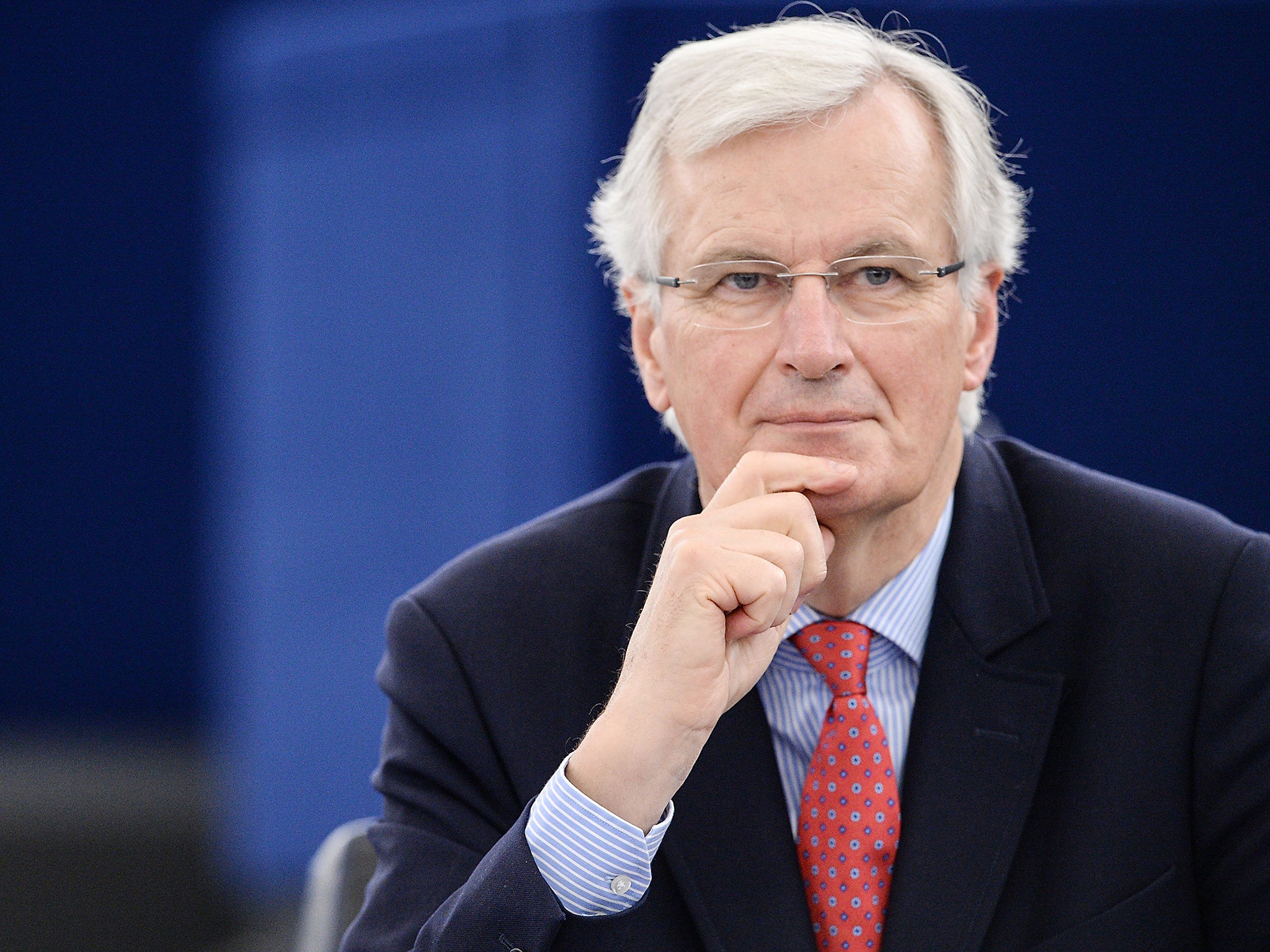EU demands Britain let three million citizens stay after Brexit, including people with no proof of residency
'We will not discuss our future relationship with the UK until the 27 member states are reassured that all citizens will be treated properly and humanely'

Your support helps us to tell the story
From reproductive rights to climate change to Big Tech, The Independent is on the ground when the story is developing. Whether it's investigating the financials of Elon Musk's pro-Trump PAC or producing our latest documentary, 'The A Word', which shines a light on the American women fighting for reproductive rights, we know how important it is to parse out the facts from the messaging.
At such a critical moment in US history, we need reporters on the ground. Your donation allows us to keep sending journalists to speak to both sides of the story.
The Independent is trusted by Americans across the entire political spectrum. And unlike many other quality news outlets, we choose not to lock Americans out of our reporting and analysis with paywalls. We believe quality journalism should be available to everyone, paid for by those who can afford it.
Your support makes all the difference.The EU has toughened its stance on the fate of three million EU citizens in the UK, demanding even for those with no proof of residency are allowed to stay after Brexit.
The lead negotiator for Brussels insisted “red tape” must not be allowed to stand in the way of EU nationals remaining with full rights.
“Individuals legally residing in the UK today must remain residents after withdrawal, including in those cases when people have no documents to prove residency,” Michel Barnier said.
“The same goes for UK nationals in the 27. No one should be confronted with a mountain of red tape,” he told a State of the Union conference in Florence.
The demand was made as Theresa May was accused of having put forward no proposals for EU citizens’ future rights – despite wanting the controversy settled next month.
Meanwhile, some EU nationals applying for residency have been rejected because they lack travel documents or did not take out comprehensive sickness insurance, when the requirement was barely known.
It underlines the complexity of an issue that has the potential to wreck the Brexit negotiations at the outset, after the EU said no exit deal was possible without a solution on citizens.
Two clear differences have already emerged: the EU’s insistence that citizens must still be allowed to bring in relatives and that the European Court of Justice (ECJ) must enforce any agreement.
Iain Duncan Smith, the former Conservative cabinet minister, immediately condemned a “free for all” which would allow anyone to claim they had been living in the UK without proof.
“The point about controlled immigration is that you control immigration and that means you need to prove residency,” he told The Times.
“I don't even know why Mr Barnier is talking about this because it is a matter for the UK government. He should shut up and wait for the negotiations.”
Mr Barnier warned the Conservatives that agreeing to the EU’s demand for rights that were “directly enforceable” by the ECJ would be a red line before trade talks can begin.
“Post-Brexit, the principle of a single applicable law should continue to apply,” he said.
“We will not discuss our future relationship with the UK until the 27 member states are reassured that all citizens will be treated properly and humanely.
“Otherwise, there can be no trust when it comes to constructing a new relationship with the UK.”
Jean-Claude Juncker, the President of the European Commission, said Britain had yet to put forward any proposals of its own, despite insisting the issue was a priority.
The row deepened after a stark warning that some EU citizens applying to stay permanently in Britain will be left in limbo for a decade unless the system is streamlined.
It will take around 11 years to process millions of expected residency requests from worried EU nationals at the Home Office’s current workrate, the Institute for Government (IfG) said.
Britain has refused to grant the 3m EU nationals in the UK the right to remain and work after Brexit until the 1.1m British ex-pats in the EU are given the same guarantee.
Brexit Secretary David Davis has admitted EU citizens – and British ex-pats in the EU – are “suffering anxiety”. A flight of badly-needed NHS staff is feared.
Join our commenting forum
Join thought-provoking conversations, follow other Independent readers and see their replies
Comments